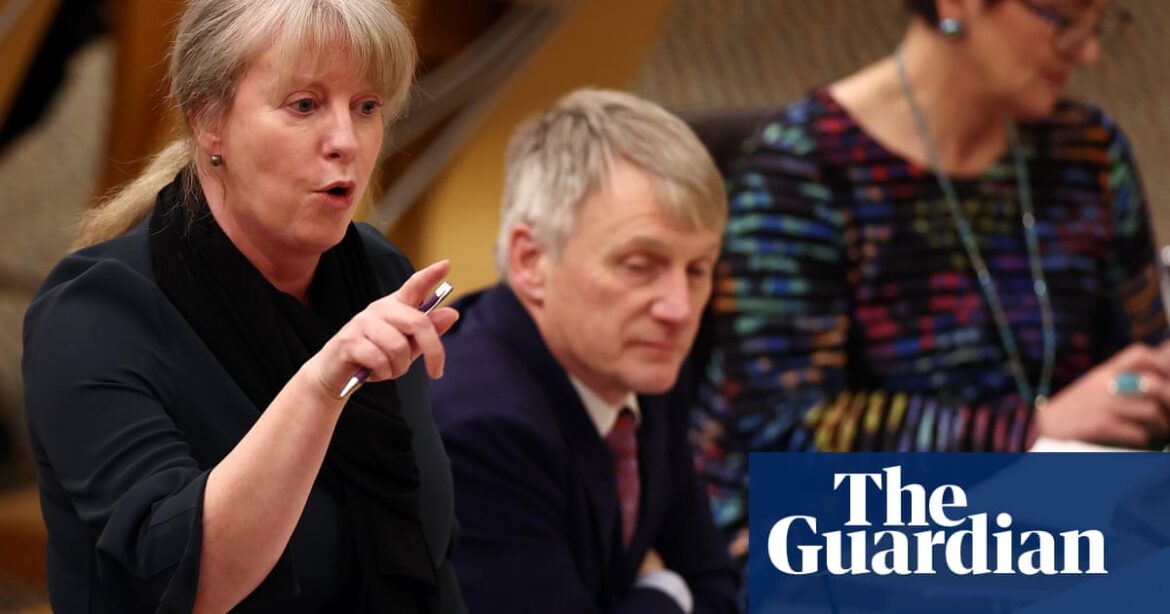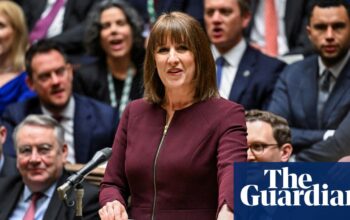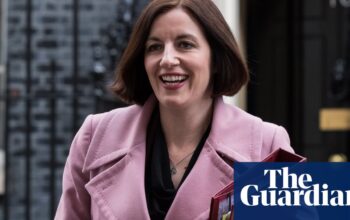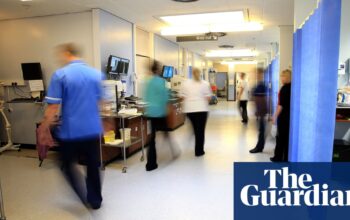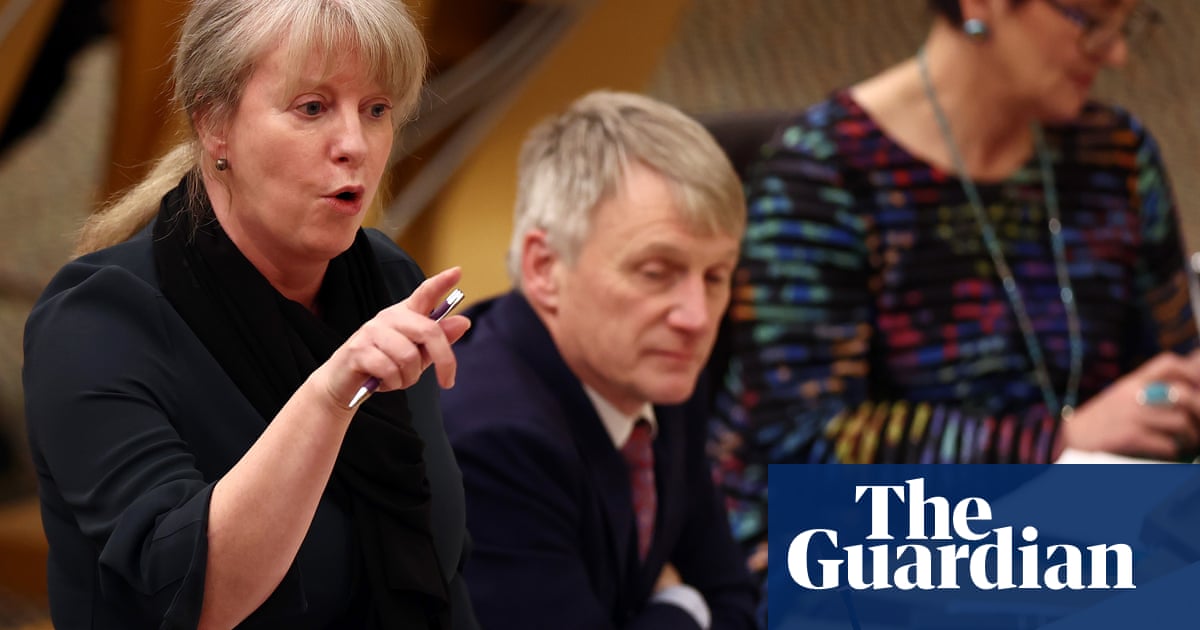
The Scottish government has unveiled plans to scrap Westminster’s controversial two-child benefit cap to lift thousands of “children out of poverty”.
Scotland’s finance secretary, Shona Robison, said her budget for the coming year “offers hope for Scotland’s future”, announcing that the two-child cap on benefits would be scrapped in Scotland as she pledged record spending for both the NHS and councils.
The Labour government has come under pressure repeatedly to abolish the much-criticised policy introduced seven years ago by the Conservative government.
Campaigners, charities and MPs across the political spectrum have said it is the UK’s biggest single driver of child poverty.
Scotland’s first minister, John Swinney, declared eradicating child poverty to be his government’s top priority, with Robison predicting that action to mitigate the cap – which means families can claim some benefits only for their first two children – will lift 15,000 youngsters out of poverty.
Hitting out at Keir Starmer’s UK government, Robison said many had looked to Labour to end the “pernicious” policy – but now the Scottish government would act where it had not.
Outlining her tax and spending plans in Holyrood on Wednesday, Robison said: “Be in no doubt that the cap will be scrapped.”
She said implementing the move would require “co-operation” from the UK government, which has the relevant data on the families that lose out as a result of the policy, adding that the Scottish government would “work as hard as possible” so payments can start being made “as early as we can in 2026”.
Figures released earlier this year showed a total of 1.6 million children – equivalent to one in nine of all UK children – were affected by the policy last year, an increase of 100,000, while 59% of the 450,000 households hit had at least one parent in work.
The policy prevents parents on universal credit claiming benefit support for any third or subsequent child born after April 2017. Currently, this means families lose out on £3,455 a year for each child affected, subjecting many to hunger and hardship.
Robison challenged Labour to “join us in ending the cap in Scotland”, but she told MSPs: “Let me be crystal clear, this government is to end the two-child cap and in doing so will lift over 15,000 Scottish children out of poverty.”
According to the Child Poverty Action Group (CPAG), abolishing the two-child limit would cost £1.7bn but would be the most cost-effective way of immediately reducing child poverty, lifting 300,000 children above the breadline and pulling 700,000 more out of extreme poverty.
The policy was introduced in 2017 on the basis that cutting benefits by more than £3,000 a year for the third and each subsequent child would persuade low-income parents to get jobs. However, subsequent research has shown it has had no impact on employment levels, but is more likely to drive families into poverty.
The government has a record £47.7bn to spend in 2025-26, with Robison announcing record funding for the NHS and councils, as well as a major increase in funding for affordable housing. A total of £21bn will go on health and social care, which Robison said was an increase of £2bn next year. She vowed the additional cash would make it easier for people to get an appointment with GP, and reduce NHS waiting times.
Robinson also promised to reintroduce winter fuel payments for all pensioners – part of changes that will result in the bill for benefits in Scotland rising to more than £6.7bn.
The Scottish government previously came under fire for cutting £200m from affordable housing in the current year’s budget, and Robison promised to up spending in this area.
She said ministers would “ramp up action on housing” with £768m for affordable homes, which will lead to more than 8,000 new homes being built or acquired over the coming year.
Unveiling her plans at Holyrood, Robinson said the budget showed the government understood “the pressures people are facing”.
“This budget invests in public services, lifts children out of poverty, acts in the face of the climate emergency, and supports jobs and economic growth. It is a budget filled with hope for Scotland’s future,” she said.
Source: theguardian.com
